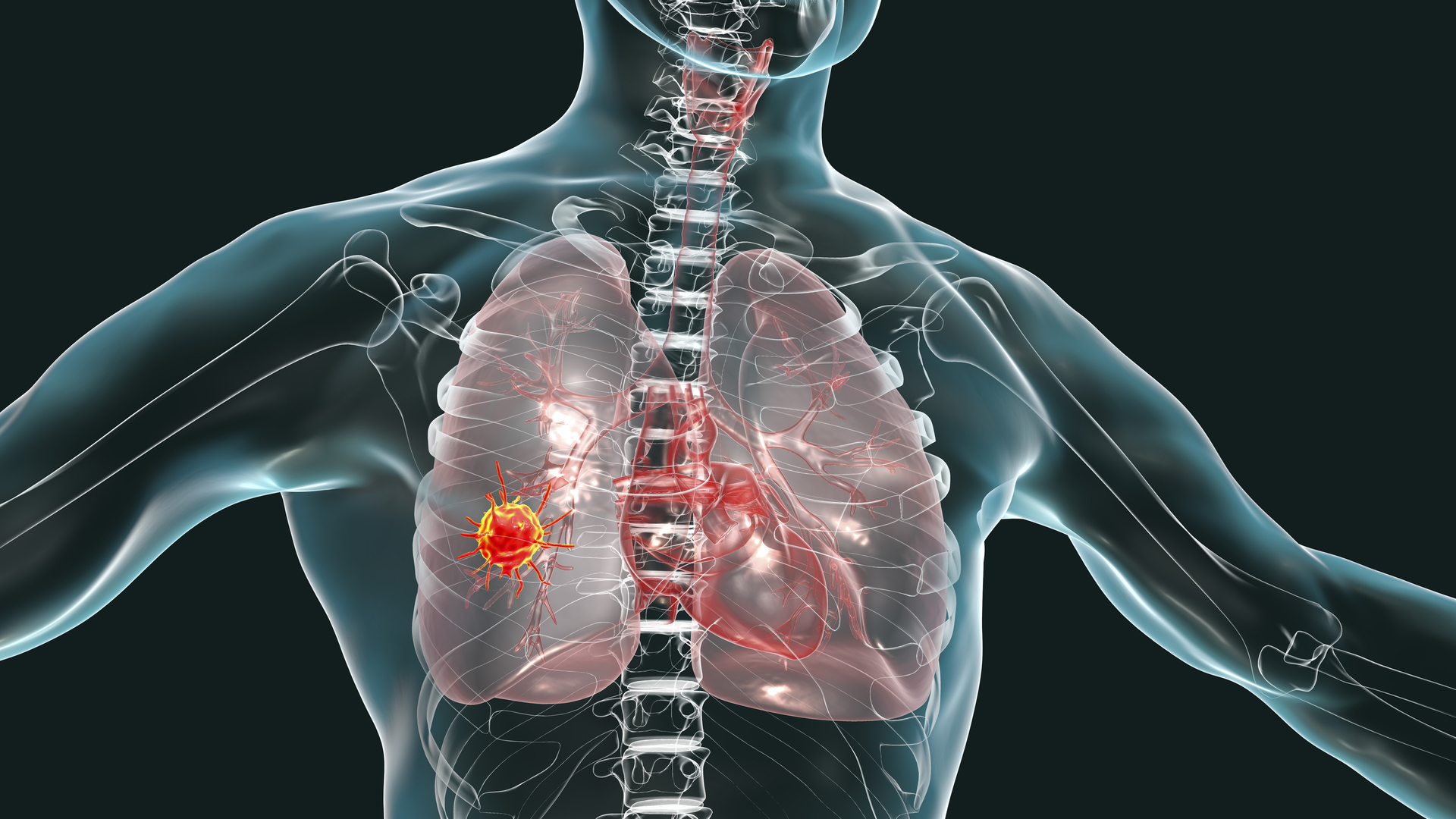A team of scientists from the Research Institute of Physical and Chemical Biology named after A.N. Belozersky Moscow State University (NII FHB Moscow State University) found out that the dosage form of vitamin B1 - cocarboxylase - in high doses can suppress lung cancer cells. This was reported in the International Journal of Molecular Sciences. The research of scientists was supported by the Russian Science Foundation.
To test the efficacy of this compound against malignant tumors, the authors of the study conducted a laboratory experiment on human lung cancer cells and normal monkey epithelial cells. The results of the experiment showed that under the action of cocarboxylase, the ability of cancer cells to reproduce was suppressed, while healthy cells were not affected.
- Malignant tumor in the lung (computer illustration)
- Gettyimages.ru
“New data on the anticancer effect of high doses of cocarboxylase, while safe for normal cells, may have medical use in the treatment of lung cancer, especially in combination with other agents. Now, clinical studies of such an action of cocarboxylase are required, "said Victoria Bunik, the main author of the study, leading researcher at the Research Institute of FHB MSU.
Cocarboxylase is formed from vitamin B1, or thiamine. It is already used in medicine for the treatment of various diseases: diabetes mellitus (including diabetic coma), renal and hepatic failure, cardiac arrhythmias and many others. However, for the first time, Russian scientists have shown the possibility of fighting cancer cells using this compound.
Scientists have explained the mechanism of action of cocarboxylase on tumor cells. This substance chemically binds with a number of enzyme proteins and acts as a catalyst for various processes. In particular, it affects carbohydrate metabolism and, indirectly, the synthesis of nucleic acids, proteins and lipids. But the most important thing is that under the action of cocarboxylase, the content of glutathione, which is responsible for their viability and resistance to therapy, decreases in cancer cells.
According to the researchers, the use of cocarboxylase as an anticancer drug is possible even before clinical trials.
“Cocarboxylase is an approved and widely used drug. Doctors could probably exploit the potential anti-cancer effects of cocarboxylase and prescribe it as adjunctive therapy. But here, of course, it is important to take into account the potential interaction of drugs, "Victoria Bunik said in an interview with RT.
According to her, it is necessary to draw the attention of relevant specialists to the problem, first of all, doctors who are observing patients with lung cancer.
The researchers remind that lung cancer is one of the most difficult to treat types of cancer and ranks first in mortality among patients (about 60%). Also, lung cancer is the most common, especially in developed countries. There are many causes of this disease, but the main one is smoking.

